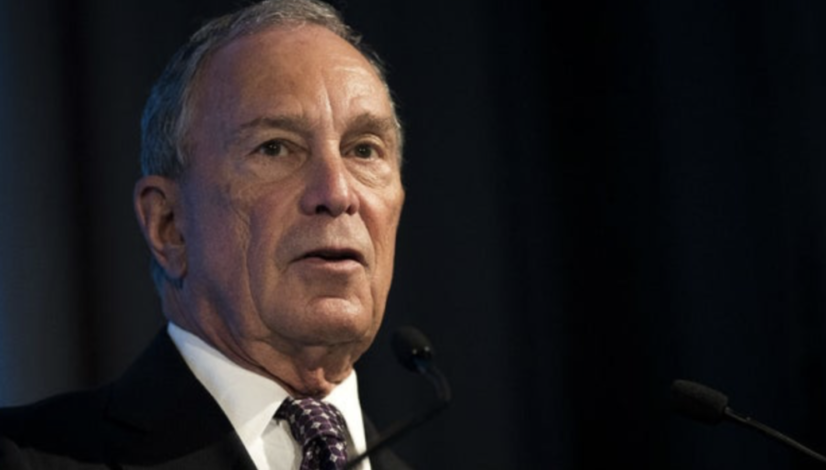Bloomberg run should push Warren to the center — but won’t

Former New York City Mayor Mike Bloomberg is stepping toward a presidential run. His move suggests that he, like so many others, considers Sens. Elizabeth Warren (D-Mass.) and Bernie Sanders (I-Vt.) too extreme to defeat President Trump, and former Vice President Joe Bidentoo weak to successfully represent moderate Democrats. He sees an opening.
By every normal political calculus, Bloomberg’s entry should press Warren, who is currently the odds-on favorite to win the nomination, to tack towards the center. By doing so, she could undercut the mayor’s bid. She knows that her progressive policies alienate many voters, and especially in the states won by Trump in 2016; polling in the toss-up states critical to 2020 success finds Warren trailing the president.
But this isn’t a normal race, and Warren is not a normal candidate. Warren cannot move towards the middle, for three reasons. First: Her political career is irrevocably tied to her antagonistic class warfare. Two: She would be destroyed on social media. Three: She already faces “authenticity” issues; wiggling on “Medicare for All” or on hiking taxes on the wealthy would fuel that charge.
Primaries generally move Democrats and Republicans to their outer flanks, causing candidates to perform complex pirouettes to secure the nomination only to later backpedal to win the general election.
In 2012 Republican Mitt Romney moved right to attract the Republican base; the New York Times suggested the milquetoast Romney was a “right-wing extremist.”
In 2016, Bernie Sanders pushed Hillary Clinton to the left on the TPP, which she had earlier called the “gold standard” of trade deals; she waffled and then buckled.
But Warren is different. She will not shift to a moderate lane. She is what she preaches, with almost messianic zeal.
In the first debate, Warren scolded former Rep. John Delaney (D-Md.) for his cautious approach, saying “I don’t understand why anybody goes to all the trouble of running for president of the United States just to talk about what we really can’t do and shouldn’t fight for.” Those are fighting words; you don’t back down from that.
In fact, Warren has not backed down once during her campaign. During the recent debate on funding Medicare for All, she vowed that the estimated $30 trillion in excess costs to the federal government would be entirely born by the wealthy and by corporations. She has promised the enormous health care takeover would not cost the middle class one cent. Challenged by numerous rivals on her math, she doubled down, saying “only billionaires” would foot the bill, an assertion that contradicts her own proposal.
Nonetheless she charges ahead, knowing that to back down would be to invite instant and painful retribution on social media, where the candidate enjoys the backing of loyal armies of “woke” enthusiasts.
President Obama recently took a swipe at those mostly young “woke” warriors, saying they are “as judgmental as possible about other people and [think] that’s enough.” “That isn’t activism,” the former president said, that’s just “casting stones.”
He is correct, of course. The legions of online champions and detractors have real clout, and have done much to shift opinion, especially among millennials. Rep. Alexandria Ocasio-Cortez (D-N.Y.) has 5.7 million Twitter followers, and they are not a quiet bunch. If you want to be clobbered online, say something dismissive about any member of the “squad,” as AOC, Rep. Ayanna Presley (D-Mass.) Ilhan Omar (D-Minn.) and Rashida Tlaib (D-Mich.) are called. Those noisy newcomer congresswomen not only have the numbers, they have the passion.
Here’s what we know about tweets and posts on Facebook; the more incendiary they are, the more attention they get. Internet experts can attach numbers and percentages to these observations; they explain much about why the conversations on Twitter and elsewhere are so toxic.
They can tell you why Warren, with her 3.5 million Twitter followers, would not dare step out of line. While many of those followers reliably retweet Warren, and praise her every move, they would likely not brook a step-back from her assault on America’s most successful citizens, social media giants, insurers, fossil fuel firms, banks and all the other targets of her wrath.
Finally, Warren has to combat impressions that she is not authentic. Having passed herself off as having Native American ancestry for decades doesn’t help, nor does her past career as a lawyer working on behalf of wealthy corporations. For years Warren represented the kinds of businesses and causes she claims to hate, helping the conglomerate LTV, for instance, avoid paying the health benefits of retired coal workers.
The New York Times notes that, among other cases she revealed this year, “She advocated for a railroad company that wanted to avoid paying for a Superfund cleanup, and advised Dow Chemical as its subsidiary Dow Corning dealt with thousands of complaints from women who said they had been harmed by its silicone breast implants.”
There is nothing shameful in engaging in lucrative legal work while also teaching law. But her past practice could trouble the purists in our midst.
The New York Times dismisses Warren’s authenticity issue as a “sexist trope.” But you attract skepticism when you set yourself up as a paragon of virtue. Warren denounces, for instance, accepting contributions from PACs and corporations. But it turns out she did just that to run for the Senate, and then shifted funds over to jump-start her presidential run.
As a result, she already had the big donor money that some of her rivals needed to compete.
Bloomberg would be smart to enter the race; he would attract many Democrats who think Warren too toxic to beat Donald Trump. She should preempt that possibility by softening some of her positions, but she cannot. Warren is in a box of her own making; she has no way out.
Published on The Hill




